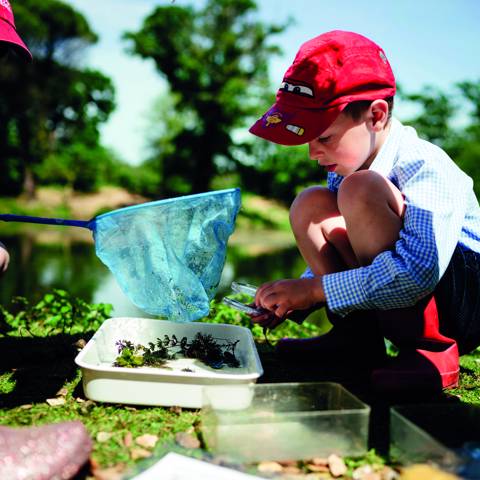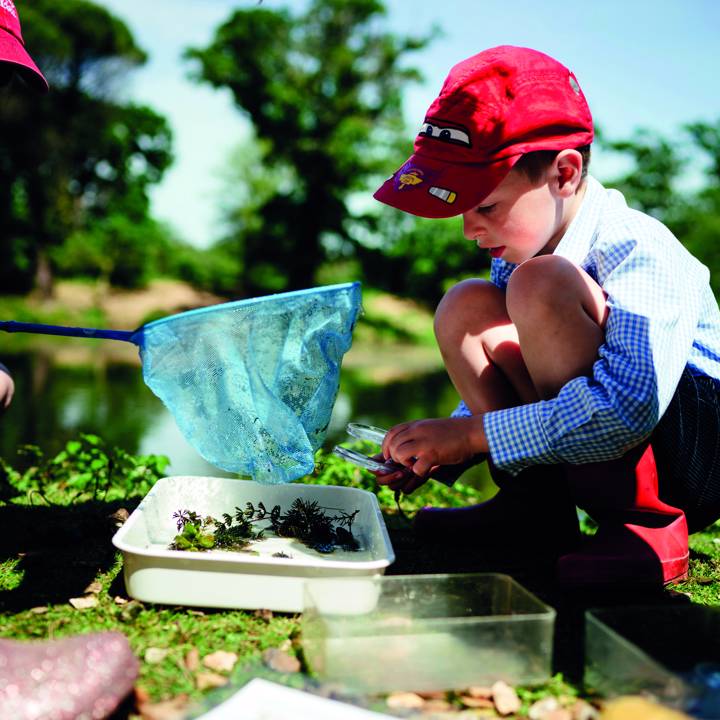28 Mar 2022
Sustainability
There is no doubt that Walhampton is a school with green thumbs. With many eco-initiatives that have superseded the requirements for the ‘Green Flag Status’ it is clear that Walhampton cares deeply for the environment. The School’s aim to be net carbon zero by 2030 and the growth in student lead environmental campaigns shows that Walhampton is not afraid to encourage sustainability. But how can this mindset be taken further? Should environmental studies be a timetabled academic subject? Or should sustainability be infused into all areas of the School curriculum?
Sustainability and environmental studies are highly interdisciplinary subjects and therefore lend themselves to cross-curricula study. Developing the idea of a green infusion into all parts of the syllabus would be the fastest way to increase our action towards climate change. This means that all subjects from Maths to Music would have modules and projects with a sustainability focus. Amy Marshall Head of Science explains that we are “aiming to give Walhampton children the tools they need” to go into a future that previous generations will not recognise. In order to do this creating a sense of “climate empathy rather than climate anxiety” is key. By using climate change as a driving focus in all subject areas, conversations about sustainability become more solution focused and less frightening. As well as this, in a world that will be governed by the climate crisis, intersectional perspectives about this issue will be a valuable skill.
Another route to further sustainability at Walhampton would be to incorporate it into the timetable as a structured lesson. This way environmental issues are consistently being driven in the classroom and the subject would be regarded with the same significance as other core subjects. But, the importance of the climate crisis is greater than that of individual subjects. And therefore, it seems preferable to implement sustainability across the whole curriculum. This way the issue will not be boxed off to students and staff after class, instead it would maintain a steady build-up of an eco-centric culture. At Walhampton, students are encouraged through our outdoor learning programme to use their natural surroundings as a vessel for learning. In order to create a setting that motivates more climate action an inspiring group of students from the University of Southampton were recently invited to Walhampton. When discussing how the School can start to actualise its environmental vision, two areas of focus were looked at. The first being the mechanics and the second being our environmental behaviour.
In order to further an environmental curriculum, the Walhampton site would have to become aligned with changes to the curriculum to maintain the relationship between learning and climate action. This is why the mechanics aspect of the discussion was invaluable. Talks of eco-retrofitting the main house and putting solar panels in the lakes could be part of the reform needed to boost the green vision at Walhampton. Secondly, the ‘behaviour’ aspect of the discussion looked towards making Walhampton set a UK precedent for the environmentally possible in schools. In order to do this taking our eco-initiatives further and developing a department devoted to sustainability would be central in forwarding our growth mindset.
This solution to transform a school to become fully eco-focused is not an idea frequently actioned in the UK. But, at the Green School in Bali it is the founding ethos. Set in the Indonesian jungle, every week students have a half day dedicated to environmental projects that help to educate and contribute to planetary wellness. As well as this students are taught through project-based learning that infuses sustainability across the curriculum. By combining both practical and academic skills children are able to access the climate crisis head on and become part of the solution. This is an inspirational project and one that UK schools including Walhampton could learn from.
However, we recognise that the green vision of Walhampton is a long-term goal and one that will not be a simple fix. But this future could be the most exciting venture ever seen at the School. And the journey has already begun. Investing in a biomass boiler and individual class eco-assignments show some of the great work that Walhampton is already doing to become more sustainable. As well as this many children at Walhampton are part of clubs centred around sustainability, for example beekeeping and ‘plogging’ (picking up litter and jogging). To add to this our Head of Science Amy Marshall has pioneered environmental awareness and initiatives that have already formed an eco-centric culture at the School. Children have also been enabled, through Mrs Marshall’s impressive academic network, to learn from speakers including university professors and environmental authors to give inspiring talks throughout the academic year. With the significant amount of environmental action that goes on at Walhampton, it is clear that there is a green pathway that Walhampton is forging.
But this pathway is not yet fully trodden, which means there is space for innovation and pioneering in our environmental future. A curriculum and new department dedicated to sustainability would promote a ‘built in’ as opposed to ‘bolted on’ mentality that will be essential in reinforcing change. In an article by the Independent1 Sir David Attenborough made it clear that schools are a key part of the “map for navigating a path towards the restoration of our planet”. Walhampton is ready to make change and this solution is just one of many other options. But, conversation is where we start our journey to realising our greener long-term vision.


